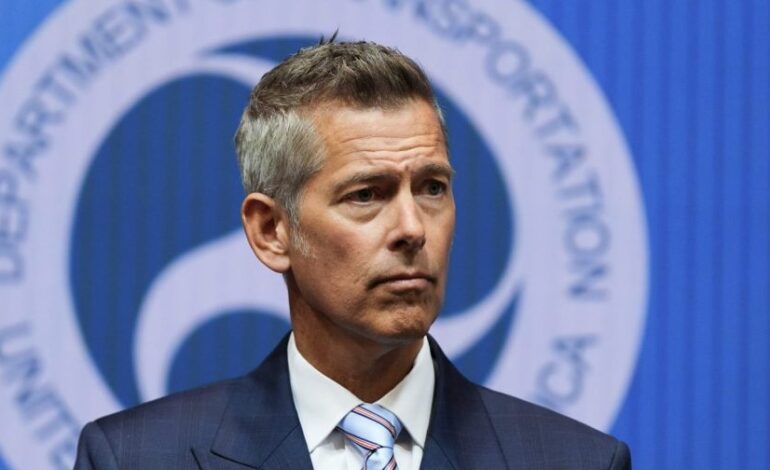Duffy Withdraws $679M from Offshore Wind Projects, Urgent Shift

BREAKING: Transportation Secretary Sean Duffy has just announced the withdrawal of $679 million in funding for offshore wind projects, signaling a major shift in investment strategy. In a statement released on Friday, Duffy criticized these projects as “wasteful,” advocating for a reallocation of funds towards revitalizing America’s maritime industry.
Duffy’s decision comes amid increasing scrutiny of federal spending on renewable energy initiatives. He emphasized that resources currently directed towards offshore wind could be better utilized to bolster the maritime sector. “Joe Biden and Pete Buttigieg bent over backwards to use taxpayer money for these projects, but it’s time to focus on what truly benefits our economy,” he stated.
This funding pull has immediate implications for the future of offshore wind energy in the U.S., which has been a cornerstone of the Biden administration’s climate strategy. Duffy’s remarks suggest a significant policy pivot that may shift priorities away from renewable energy initiatives, raising concerns among environmental advocates.
As the situation develops, stakeholders in the renewable energy sector are reacting with alarm. The announcement has sparked debates over the balance between energy transition and traditional industry support. Industry experts worry that this could hinder progress on clean energy solutions, especially as the U.S. aims to meet its climate goals.
Officials are now urging a closer examination of federal investments. The maritime industry, which has faced challenges in recent years, may welcome this funding redirection, but advocates for renewable energy are alarmed by the potential setback for offshore projects.
What’s next? As this story unfolds, attention will be on how this decision impacts future legislation and funding allocations. Observers are keenly watching for responses from renewable energy advocates and maritime industry representatives in the coming days.
Stay tuned for more updates on this developing situation as it could reshape the landscape of U.S. energy policy and maritime industry funding.






